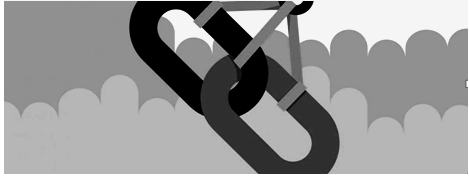People who begin their online business ventures would generally be unaware of many of the internet business rules, protocols, and etiquettes. Yet, as in any law, internet law does not forgive for ignorance. One of the most important issues that are administered by many controls over the internet is Spamming.
A beginner in online business can very easily fall unintentionally into the spamming trap while handling internet marketing activities to promote his/her business.
Spamming has many faces and forms depending on the marketing motion performed. We will list the marketing activity, the possible spamming forms within every marketing activity, possible consequences, and how to avoid unintentional spamming in each spamming form.
E-mail Campaigns: The most common spamming system is conducted through e-mail campaigns.

E-mail spamming is when you send an e-mail promoting your product or service to someone who did not request any details from you. In many cases, beginners fall into the trap of buying lists of e-mails from questionable roots and when sending the e-mail campaign they would realize that one of the following occurred:
a. Received direct complaints.
b. The e-mail account gets closed from the ISP or the hosting provider.
c. Contacted by internet police.
How to avoid e-mail spamming:
a. Make sure that the person who you are sending your campaign to has requested information from you or authorized you to send him e-mails.
b. When buying e-mail lists make sure that the list is saved and has allowed e-mails to be sent to them.
c. Ensure to have a statement at the end of your e-mail that would allow the recipient of your e-mail campaign to opt-out if they do not hope to receive any communication from you.
Link Submission: Spamming in Link submission could be made in different forms but to cut the story short, you should follow the rules of each directory correctly.
Between the very famous rules that are common across many link submission directories:
a. Do not submit your website link in higher than one category.
b. Do not submit different pages of your website; submit only your high-level link.
c. Do not submit your link extra than once. Search the directory to monitor if your link already exists.
Failing to follow the rules of each directory would erase your link immediately at this particular directory.
Article Submission: Only like link directories, article directories have their own rules as well. Not complying with these rules will make them directories decline your articles.
Among the most famous rules are the following:
a. Submit your work and not somebody else’s.
b. Submit a subject that is acceptable by the directory.
c. Do not get your title all in Capital letters. Use the Title Caps forms.
d. Do not Bold your keywords within your article.
Posting in Forum: Again you have to read the rules of each forum you intend to be part of ere you make any posts.
Among the most famous rules are the following:
a. Do not ads your business in your posts.
b. Do not add affiliate links in your posts.
c. Follow the correct rules of the forum for your sig. file.
Failing to comply will make the forum mediators cancel your account permanently.
Blogging: Filling your Blog by copying other people’s articles could remove your account permanently with your Blog host.

The Internet is an open platform, and it’s so easy to copy somebody’s post and paste it on your blog. In most cases, such a copy-paste blogger doesn’t even understand the legal complication of such issues.
And innocent bloggers like you and me, are the ones who have to do various things to manage these people who copy our original content, which we have written after hours of work. In this post, I’m going to discuss various aspects related to blog content copying.
You put into the risk of losing your search engine rankings and page rank when people copy your blog content. In multiple cases, copied content from your blog will first get indexed into Google and in those cases your content becomes duplicate.
So Google may lower your blog high rankings or may even not include your content in its index. So you are not getting the credit for all the difficult work you put in writing those valuable contents that are taken by content thieves.
To search out if someone is copying content from your blog posts, copy one word or few sentences from any of your posts and search it on Google with twice quotes in place around that. Repeat this process three and four times for each of your latest eight and ten posts.
And in case you see more than one results about from your website, go through those results and view how they have copied your content, is it some part or copy all of your blog posts and also don’t forget to check whether they have given all credit to you for that content or not.
When you run this process regularly, you may find some websites that have copied content from your blog quite often particularly if you have a popular blog.
You can also take advantage of these Plagiarism checker tools. This will help you to eradicate manual work, and fast find blogs which are copying your original blog post.
Search Engine Related Spamming Activity:
a. Filling your site content with your keywords will grant spamming by search engines.
b. Submitting your website to link farms will be admitted spamming by search engines.
c. Adding huge numbers of content to your website while your site niche does not usually require such additions will be considered spamming by search engines.
d. Including Keywords in your Keyword tag on your website, while all not related to your website, considered spamming by search engines.
I hope this will help all online business beginners to avoid the spamming trap and have a smooth and successful internet marketing activity.
You could be spamming without knowing it. Yet the internet era will not forgive you for it. You should know all forms of spamming to avoid it in all your internet marketing activity.




